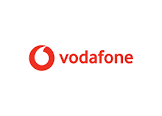$VOD $CKHGY
#Vodafone #ThreeMobile #UKRegulators #TelecomIndustry #5GNetwork #UKMerger #TelecomStocks #MobileNetwork #UKEconomy #5GRollout #VodafoneThreeMerger #TelecomInvestment
British regulators have greenlit the $19 billion merger of Vodafone and Three Mobile, marking a major shift in the telecommunications landscape in the United Kingdom. The approval, however, comes with stringent stipulations, as both companies must commit to making significant investments to develop and expand 5G infrastructure nationwide. The decision reflects the government’s strategic emphasis on ensuring that the merger delivers tangible benefits for consumers and the country’s digital economy. This consolidation could enable the merged entity to better compete with market leaders such as BT and Virgin Media O2, potentially spurring innovation and providing better coverage and services in a rapidly evolving telecom sector.
For Vodafone Group and CK Hutchison, the parent company of Three Mobile, this merger represents a crucial opportunity to achieve economies of scale and operational efficiency. Cost synergies and integrated network capabilities could place the new entity in a stronger competitive position, not only in terms of urban coverage but also in rural areas underserved by current networks. However, compliance with the binding commitments to invest billions in the U.K.’s 5G infrastructure will likely pressure the balance sheets of both companies, at least in the short to medium term. Investors will closely monitor the merged firm’s ability to execute these investments without overextending their financial resources or sacrificing profitability.
The market response to this announcement has been mixed. Shares of $VOD showed slight gains in early trading, reflecting investor optimism over the long-term growth potential that this merger could unlock by consolidating resources and penetrating new market segments. At the same time, some analysts are cautious about the significant investment required to meet regulatory commitments. Execution risk is a major factor, as deployment of 5G is a capital-intensive and time-consuming process. Furthermore, the heightened competition in the U.K. telecom market could limit the capacity to immediately pass on additional operating costs to consumers. How effectively Vodafone and CK Hutchison manage these variables will influence shareholder returns and overall market perception.
On the macroeconomic level, the approval is a vote of confidence in the U.K.’s push to build a robust, digitally connected infrastructure. As post-Brexit Britain seeks to maintain its status as a global tech hub, expanding high-speed 5G coverage is pivotal. The Vodafone-Three merger could accelerate these efforts, contributing to economic growth by facilitating remote work, smart city development, and the broader digitalization of industries. However, there are lingering concerns from regulators and consumer advocacy groups about market competition and price controls. Whether the merger translates to tangible customer benefits and boosts in connectivity remains to be seen, but it is now undeniably a critical development in shaping the future of the telecom landscape.





Comments are closed.